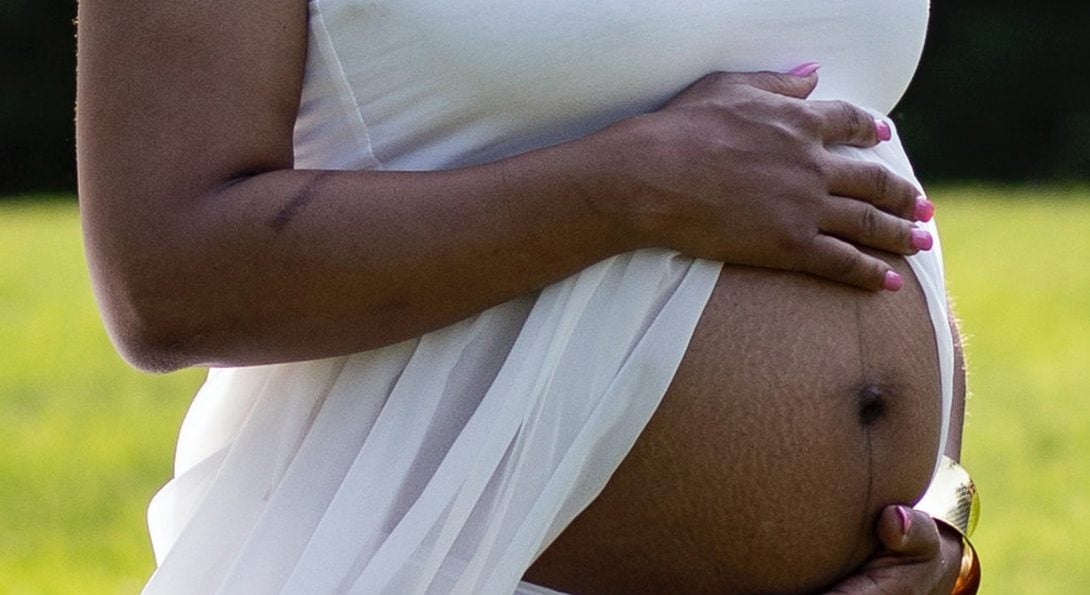UIC Nursing study to look at coronavirus and pregnancy

UIC Nursing study will look at how isolation, stress and changes in healthcare related to COVID-19 affect pregnancy and the postpartum period. Heading link
When hospitals began restricting visitors and making other policy changes to prevent the spread of COVID-19, UIC Nursing assistant professor Kylea Liese, PhD, CNM, wondered what affect this would have on the choices of pregnant people.
She was curious whether it would drive more people to consider home birth – but she also wondered about other pregnancy milestones. How would social distancing change meaningful experiences, such as celebrating with a baby shower, or the ability to have social support during birth and after?
“I wanted to look at birth choices,” Liese said. “But I was also interested in the broader effect of the virus on pregnancy and birth, thinking about how social isolation changes the experience for both the pregnant person and the post-partum person.”
She teamed up with associate professor Julienne Rutherford, PhD, and associate professor Mary Dawn Koenig, PhD, RN, CNM, to create the COVID-19 Pregnancy and Postpartum Experiences (COPE) Study, a survey about how isolation, stress and healthcare changes related to the coronavirus affect pregnancy and the postpartum period.
The 20-minute survey, which was approved by the university’s institutional review board, targets people who are currently pregnant or who delivered since January 2020. Responses are anonymous.
Liese was surprised by the influx of responses, driven by social media postings. The researchers got more than 3,500 responses in the first two weeks alone. The survey will remain open until July 3.
Driving the study are policy changes at hospitals to prevent the spread of the virus. Many are allowing pregnant people only one visitor to be with them during and after childbirth, require coronavirus testing before patients and visitors can be admitted, and are separating mothers from their babies if the moms test positive for COVID-19.
The survey asks open-ended questions about where the individual plans to give birth and why, but also asks about safety concerns, fear of contracting COVID-19, feelings of isolation and anxiety and how the pandemic has affected physical and mental health. There are questions for both prenatal and post-partum individuals.
“Not only does this survey paint a picture of what life is like for pregnant people and new parents during a pandemic, it is a first step to building a cohort study allowing us to track the long-term consequences for their babies of developing in the midst of unprecedented upheaval and uncertainty,” adds Rutherford.
Liese says as the survey remains open, the researchers hope to get more responses from diverse populations.
“One of our goals was to look at maternal health disparities to see how the stress of the epidemic lands differently on different populations,” she says.
If you are currently pregnant or have given birth since January 2020, are at least 18 years old, able to read English and are in the United States, you can take the survey here: https://uic.ca1.qualtrics.com/jfe/form/SV_9t31iCfGwKa7R1H
Follow study updates on Twitter and Instagram at @COPEStudyCov19.